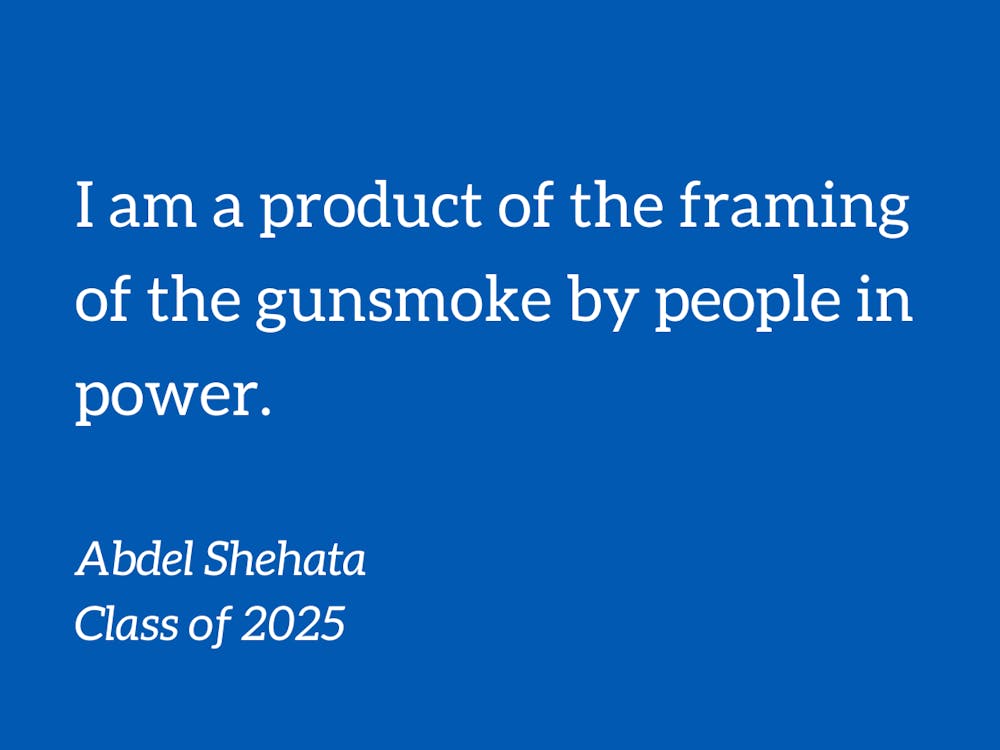I do not see myself in the bullet but I see myself in the gunsmoke. Throughout my life I have had run-ins with gun violence, both direct and indirectly, that shaped who I am today. If nothing else, those run-ins taught me an important lesson: that the public sphere belongs not to humans, but to guns.
My latest direct run-in with gun violence was in Southpoint mall, about a 20 minute drive from my family home, last year. My mother and I were walking out of Macys when two parties started shooting at each other. At the time, we didn’t know if it was a mass shooting or a targeted one. Nevertheless, I don’t think our reactions would have changed. When we heard the gunshots, I slid into the closest store but my mother froze because she didn’t know what was going on. So I got up and went to get her. Then the manager of the store directed everyone into the back room. There some people were crying, others making phone calls making sure that their loved ones were safe. The backroom was an ocean of despair since people didn’t know what was going on. My mom was crying at the start but eventually collected herself to make the same phone calls checking for her friend’s safety. In 15-30 minutes, the police got us out and we were on the way back home.
This experience taught me a few important lessons. First, I have to be ready to run away at any moment, especially in public places, where I am just one of the many human targets. Second, all it takes is one bullet to turn a mall into small rooms of fear and despair. Third, it taught me that while the gun can’t speak, it does have a voice on how I live my life. I can count the number of times on my hand I have been to Southpoint after that experience. Each of those visits highlighted by my sensitivity to loud noises and paranoia. A bullet doesn’t need to invade the body to leave it paralyzed.
My first direct run in with gun violence was when I was 8. My Father was shot multiple times, on Fayetteville St, working as a taxi driver during a robbery. The first time I visited him, I didn’t exactly know how to react. What is the right reaction to have when you see your father on a hospital bed connected to a plethora of machines? Whatever the answer is, I remember my reaction: I froze in front of the bed until my mom pushed me for a hug. Looking back at the moment it was one of the defining moments in my life that made me understand the fragility of my life. More importantly, it made me understand that looking for any type of justice is futile since his assailants were never arrested. When you are confronted with tragedy, you don’t hope for vengeance but survival and the return to normalcy.
It took my father months of physical therapy and drinking food to return to normal. Nevertheless, this accident left scars and a bullet inside of him, evidence of the impact of gun violence on his body. Gun violence is always in conversation with our bodies, leaving both mental and physical scars. Like our bodies, society suffers from the same scars of gun violence. Nonetheless, gun violence doesn’t impact all of society equally, instead the underclass has to feel the brunt of most bullets fired.
Another unexpected encounter I had with the impact of gun violence was during a back to school donation drive. During the drive, an Afghan father came up to me and another volunteer. He started speaking Pashto with the other volunteers. Halfway through a conversation, he pointed to his calf where there was a bullet scar and said in English “from the Taliban.” His tone when saying that was prideful, which at the time I found ironic. I found it ironic since that man took a bullet for an Afghani government that doesn’t exist anymore and a US government which looks down upon him. Even so, I understand his sense of pride vaguely. A sense of pride that stems from bleeding for something you believed in, even if others didn’t.
Through that unexpected encounter I was taught that often the scars of gun violence are left on the underclass. At the same time, the underclass is framed as perpetrator of gun violence. Through this framing, even the experience of gun violence becomes weaponized against the working class and minorities. Through this framing, the gun manufacturer becomes innocent, and the victim becomes guilty. Through this framing, the solution to structural problems becomes more police aka more guns in minority neighborhoods.
As a member of the underclass, I am a product of the framing of the gunsmoke by people in power. I do not seek justice or retribution for my experiences because oftentimes my community is the first to pay for such ideas. I do not want bandaids for symptoms of gun violence, instead I demand real structural changes. I do not wish for sympathy for my scars, instead I wish for action that makes sure that no kid has to live what I lived through, and that no mother has to cry or worry for the safety of her kid due to gun violence.
From Oregon’s Measure 114 to Iowa’s 1st amendment, change often comes on the ballot, either through direct vote on measures or indirect vote on candidates. Thus, I urge you to make an educated vote through just taking a minute, and checking how much your candidate received from gun rights lobbying organizations. Lastly, If you feel passionate about stopping gun violence, please support some of the good that organizations like Brady and Everytown.
Abdel Shehata is a Trinity sophomore. His column usually runs on alternate Wednesdays.
Get The Chronicle straight to your inbox
Sign up for our weekly newsletter. Cancel at any time.

